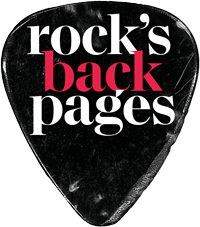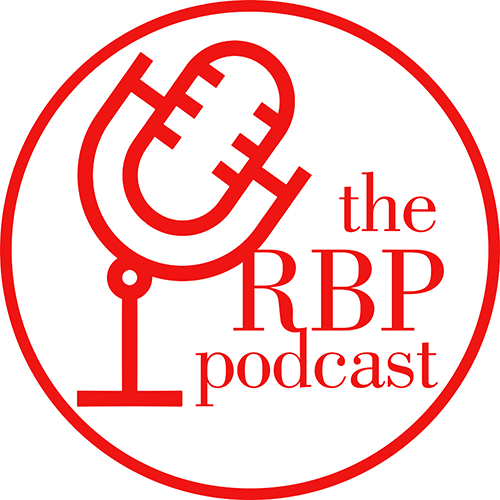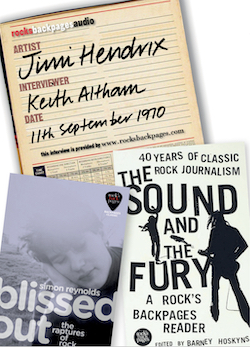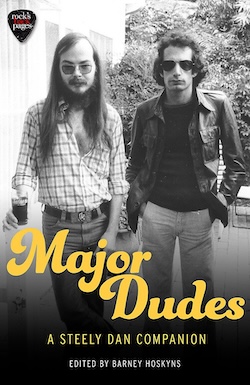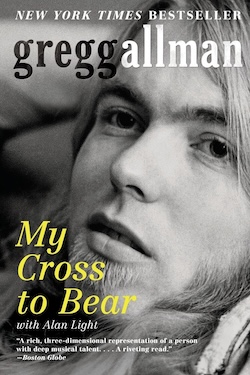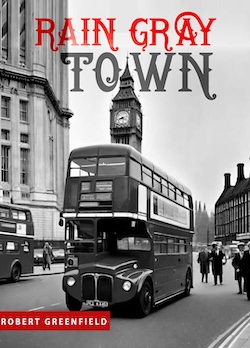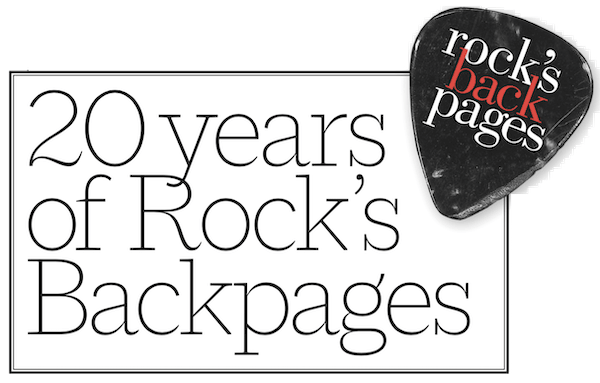Siouxsie & the Banshees
Siouxsie's Cues
IN OUR LATEST collaboration with Rock Archive, Jill Furmanovsky delves back through her archives to share a selection of previously unseen images of Siouxsie and the Banshees. These new photographs, alongside other iconic shots and accompanied with key features from the RBP Library, celebrate this unique band's music and fashion legacy.
Siouxsie Sioux and Steven Severin first met at a Roxy Music show in September 1975. From February 1976, along with other friends including Billy Idol and Steve Strange, the pair began to follow the unsigned Sex Pistols, inspired by their uncompromising attitude. They were soon dubbed "the Bromley Contingent" in a reference to the South London area they hailed from. In the summer of 1976, when they heard that one of the bands scheduled to play the 100 Club Punk Festival was pulling out from the bill at the last minute, Siouxsie suggested she and Severin perform, even though there was no name for the act, nor any additional members. Two days later, they performed at the festival with two borrowed musicians at their side.
Siouxsie Sioux at home, 1980 (Michael Putland)
*
Excerpts from "Parade Of The Punks", by Caroline Coon, Melody Maker, 2 October 1976
THE 600-STRONG line, which last Monday straggled across two blocks outside London's 100 Club in Oxford Street, waiting for the Punk Rock Festival to start, was indisputable evidence that a new decade in rock is about to begin.
Two 18-year-olds from Salisbury were at the head of the queue. "I've been WAITING for something to identify with," says Gareth, hopping up and down "There's been nothing for years. I just want to be involved."
Michelle and Bruno are both 16. Their hair is short and neat. Their shirts and ties, leopardskin jackets, stiletto heels, pointed toes and dramatic make-up is variously-repeated down the line.
"These are the best bands around," says Michelle, already a seasoned fan. "They're playing the music of the people."
Over the last eight months a generation of rock fans have quietly developed an extraordinary sense of belonging together. Excited by the new (to them anyway) blast of energy in the music played by bands like the Sex Pistols, Eddie and the Hot Rods (although these particular bands have little time for each other, many of their fans love them both) and most of the others on the Punk Rock Festival bill, they are creating a new cultural identity for themselves.
They have their own clothes, language, "in" jokes and fanzines. There is both healthy cameraderie and competitiveness.
The established bands share their equipment and rehearsal space, and most of the established musicians are encouraging friends to form bands of their own. Even apart from the 30 musicians actually playing in the festival, the audience is seething with new talent.
The creative buzz, the feel that something is "happening," is infectious. There is a continual stream of criticism and rude abuse poured over each other's favourite enterprises, but having and giving back that kind of attention is part of the fun. "Do It Yourself" could be the motto down at the 100 Club. Everyone wants to get in on the act. Everyone can.
*
Sioux by Severin (1976)
SUZI AND The Banshees: It's never the same at a Pistols gig nowadays (in London, anyway) if what is known as the "Bromley Contingent" isn't there. This inseparable unit is Steve (21). Bill (22) and Simon (19) – he sells hot dogs off a mobile stand during the day – raspberry-haired Debbie and Suzi herself.
They first heard the Pistols at their local tech. in January and they've been faithful followers ever since. They made the trip to Paris, in a ropey old car, to see their heroes' first overseas performance, and Suzi, shocking in her semi-nudity, got punched on the nose.
She is nothing if not magnificent. Her short hair, which she sweeps in great waves over her head, is streaked with red, like flames. She'll wear black plastic non-existent bras, one mesh and one rubber stocking, and suspender belts (various), all covered by a polka-dotted, transparent plastic mac.
Over the weeks the Bromley Contingent's parade of inventive dress (it's rarely the same two weeks running) has set the fashion pace of the scene. It was only a matter of time before they took their street theatre to the stage.
Apart from Suzi, it wasn't decided who would actually end up doing the festival until the day. Everyone thought, though, that they'd carry out their much-advertised plan to sing 'Goldfinger'.
It was not to be. At the last moment, in an orgy of rock iconoclasm, they decided on 'The Lord's Prayer' spiced with "the most ridiculous rock songs ever written".
Two-tone Steve (his hair is black on top, white at the sides) was on the bass he picked up for the first time the night before. Sid Vicious, Johnny Rotten's friend and inventor of the Pogo dance, was on drums. He had one rehearsal. And a mature gent called Marco was the lead guitarist.
The prayer begins. It's a wild improvisation, a public jam, a bizarre stage fantasy acted out for real. The sound is what you'd expect from, er, novices.
But Sid, with miraculous command, starts his minimal thud and the beat doesn't fluctuate from the start to the finish of the, er, set. Against this knobby sound, Suzi, with the grace of a redeemed ghoul, rifles the senses with an unnerving, screeching recital of 'Twist and Shout' and 'Knockin' On Heaven's Door'. Sid's smile flickers. Marco, his guitar feeding back, rolls up his sleeves, and Two-tone Steve two-tones.
The audience, enjoying the band's nerve and audacity, eggs them on, gets bored, has a laugh, and then wonders how much more it can take. Twenty minutes later, on a nod from Marco, Sid just stops.
The enthusiastic cheering is just recognition of their success. If the punk rock scene has anything to offer then it's the opportunity for anyone who wants to get up and experience the reality of their wildest, stage-struck dreams.
The band thought their performance would be a one-off, but they were asked to play again. So Siouxsie and Steve brought on board guitarist Peter Fenton and drummer Kenny Morris. Fenton only lasted a few months and was replaced by John McKay in July 1997. Their popularity continued to grow and by early 1978 they were selling out London venues. They finally released their first single 'Hong Kong Garden' in August which made the UK Top Ten. The first album The Scream shortly followed and by early 1979 they began promoting themselves in Europe.
*
Siouxsie with Ian Birch (Jill Furmanovsky)
"Siouxsie & the Banshees: The Giraffe Looked At Siouxsie", by Ian Birch, Melody Maker, 17 February 1979
"WHAT DO you think of it, then?" sneered Siouxsie Sioux as we slipped into the Kurfurstendamm, Berlin's notorious main strip, which is like Oxford Street during an economic boom. "I don't think much of it," she continued. "Far too many old ladies dripping furs and jewellery."
She had a point. Every vista seemed to open up another example of elegantly wrinkled wealth.
Christopher Isherwood had, without doubt, left Berlin decades ago for fame and fortune in California. Harry Palmer's inscrutable espionage antics were locked firmly into '60s popular culture, while the streets were hardly crawling with the kind of aesthetic bank clerks that are supposed to go hand-in-hand with Teutonic metal machine musik. But we had an evening and a following day to delve a mite deeper. Or so we hoped.
The trip was a three-day skirmish which took in Hamburg and Berlin, part of a slightly longer promotional jaunt arranged by Polydor to introduce Siouxsie and the Banshees to the EEC. Polydor didn't expect any immediate massive returns. Rather, they wanted to nudge their band onto the first rung of the ladder. Adrian Rudge, whose card read "International Promotion", resigned himself to many trips like this one. Unless you're very lucky or have instant family appeal, breaking the continent is a process of slow attrition. So far, The Scream has notched up around 4,500 sales in West Germany, which isn't bad considering that it has just been released and the group are hardly a bierkeller name.
In Hamburg, the record company machine got underway. After a brief hotel stop-off, the afternoon was to be given over to interviews. Three, to be precise, and, in the true mogul manner, the German Polydor chief prepared the group by wheeling in a Perspex and tubular steel trolley full of demon alcohol. The room had all the characteristic signs of opulence, but one item added an oddly disquieting touch. On the wall hung a poster of a kid toting a gun at another who was blindfolded and strapped to an executioner's post. A new-world Lord Of The Flies? A heavy-duty comment about the reality outside in this land of Baader-Meinhoff? Who knows?
Interestingly, not only were the questions more or less identical throughout, but the band responded with (maybe unexpected) enthusiasm. They filled in the silences and they reiterated for the zillionth time the story of their 100 Club origins. News of Sid's death must have rekindled interest in that "legendary" performance.
The German angle was a natural topic for discussion. Everyone asked about 'Metal Postcard (Mittageisen)' which, of course, is dedicated to John Heartfield, the German artist whose photo-montages used images of Hitlerian fascism. In fact, the song arose from two sources: one was a propaganda speech made by Goring, and the other a Heartfield piece called "Hurrah, die Butter ist alles!" which shows an overweight nuclear family chomping away on industrial knick-knacks.
Steven Severin (the surname comes courtesy of the Velvets' 'Venus In Furs') cottoned on to the pun in the title. It's hardly surprising, if you're not acquainted with German. "Mittageisen" translates as midday iron (the food in the Heartfield pic) but might be mistaken for the similar sounding "Mittagessen" which means midday meal. Clever, huh?
The song, they explained again and again, is a warning about how some powerful figurehead could implant a master scheme and you'd wake up to find daily orders coming over the, er, totalitarian loudspeakers. Siouxsie: "It could be apparent today. Despite trade unions and so on, everyone needs someone to guide them." Kenny Morris: "At the moment England is like a gaping wound. It's just waiting for someone to jump in." John McKay: "Heartfield put down the establishment. He was older and wiser than us and knew how to use photo-montage. All we had to use were Nazi armbands." Siouxsie: "Now it's something you're made to be very unaware of. It's on the TV all the time. It's such unconscious manipulation." John: "If we were doing anything really dangerous against the establishment, then we wouldn't be able to do interviews." Siouxsie: "It's as subtle as turning on a light bulb. You're often not aware of supporting things."
That explains the reason for and the outcry after their ill-judged flirtation with Nazi insignia. Because it was a crudely stage-managed shock tactic, it backfired and now – in their eyes – has become like a hairshirt. Siouxsie: "What lies around the swastika I hate, but I also don't identify with blind patriotism either." Again: "I couldn't write a song based around Heartfield if I had that attitude." Take three: "I used certain make-up and a swastika for people to stand back and be repelled. I did it to cause a reaction – not because I supported Nazism. Maybe we could say we had misjudged the reaction, especially from those people who were very sensitive to it."
The discussion then moved to Iran, wars of religion through the ages, and to the controversial TV programme Holocaust, which had just been screened in Germany and had attracted the country's largest-ever viewing figures. Rock Against Racism reared its head. The Banshees refuse to do a RAR gig.
Siouxsie: "The main thing is that you don't know where the money's going." (They plan to do some charity gigs in the not-too-distant future). John: "If you don't object to Jews or blacks or pink men or whatever, why should we play an RAR gig? There's an inverted snobbery there. If I was black, I'd be very insulted by RAR."
Siouxsie: "I'd rather do something like Rock Against Rabbit-Breeding. Men planting their sperm and watching women's bellies grow, when they don't have the means to support children, is very frightening." Then a little later: "I hate the extreme left and the extreme right because they're both wrong."
Being on the road with the Banshees is no Doctor Feelgood routine of wacky excess followed by more wacky excess. Kenny constantly looks like a rabbit trapped on crackling wires; Steven breaks lengthy silences with dry asides; John is committed to it as a consuming performance; Siouxsie has a kind of homely sharpness, intuitive and determined.
They're trying to act as a barometer to whatever they see around them. Hence, as they change (and become increasingly sophisticated), so the approach and subject matter alter accordingly. The final number of every set is a version of 'The Lord's Prayer'. Deliberately kept open-ended, it is as varied or restricted as the audience of the night determines. The regulating factor is punter feedback. The lyrics consist of anthems, and Siouxsie will incorporate anything from 'Twist and Shout', to 'Deutschland Uber Alles' (though not in Germany), 'Knockin' on Heaven's Door' and 'Somewhere Over The Rainbow'.
The Banshees don't see themselves as at all unconventional. You'll hear, "We just use everyone else's things in our own way" and "We don't want to be weird" and "We have a very traditional structure to our songs."
We were treated to a sneak preview of the new single, 'Staircase', but only after swearing not to give anything away. All I'll say is that it's strong, though not as instant as 'Garden', develops the thrust of the sound on The Scream, sports some wonderful handclaps, and has an accompanying video that utilises the services of the oldest stunt man currently working in Britain. The song was sparked off by a famous shot from the movie Psycho, and by childhood fears about bogeymen lurking in darkly-lit stairwells. Siouxsie: "There's something about a staircase. It's so unpredictable and exciting at the same time. That feeling of displacement, vertigo when you're at the top looking down or at the bottom looking up."
The interviews were winding down, the sound check approached and the vodka was taking effect. Suddenly Siouxsie exclaimed: "I'll tell you my main childhood influence – Otis Redding." Gaspo! Steve taunted jokingly: "Relate that to the lyrics!" Seemingly, Siouxsie's older brother and sister had been bluebeat/ska/soul fanatics and had drenched the house in the likes of Prince Buster.
That evening's gig in the Markthalle went down well, apart from a solitary Hell's Angel who decided to introduce aggro where there wasn't any.
During the set he screamed at Siouxsie: "If you don't want to fuck me, baby, well, baby, fuck off." Siouxsie replied: "You're too ugly." Come the end of the gig, the Angel set about trying to trash the monitors. When driver/bodyguard Mick went to dissuade him, the Angel sank his molars into Mick's hand – though not before the latter had removed most of the former's teeth.
They showcased some new songs, which are still in a state of development. 'Playground' – just possibly the single to follow 'Staircase' – talks about adults who act like children and children who think they're adults. It might be interpreted as a swipe against the music press. As the title suggests, there's a kind of nursery-rhyme section, but it's still in a very embryonic stage. 'Placebo Effect' came from hearing a programme on Capital Radio, when one of the station's resident Kildares was discussing the kind and colour of medicaments that different nations most favour. Apparently the UK goes for pills while the French like suppositories and the Italians injections. Fascinating stuff.
Siouxsie also sang the whole of 'Metal Postcard' in German. Dave Woods, who dropped out of a German course at London university to become their tour manager, had done a special translation. Unfortunately, nobody noticed on the first night – but in Berlin, after Siouxsie asked which language they'd prefer, audience reaction was more "positive".
Hamburg airport is like Belfast airport: strict security, body checks, closed-circuit TV and men with guns. Waiting in the departure lounge, John's eyes followed the posters down the wall. A line of tacky semi-psychedelic travel ads terminated abruptly in a black-and-white shocker for wanted terrorists. Crosses had been etched over the faces of those already caught. John's eyes lit up: "I really do want one of those. Do you think they'd give me one if I asked for it?" I don't think so somehow, but you can always try. "Maybe if I nicked it...?" I don't think that's a great idea.
On the way to the plane there was a collection box for Amnesty International. Les, the Banshees' irrepressible and book-devouring roadie, threw in some small change. "You never know when I might need them."
The Banshees in Berlin (Jill Furmanovsky)
The Berlin show, held at the Kantkino – which normally operates as a hip cinema (performance alternating with Buster Keaton movies and arthouse contenders like Wim Wenders) – had another full turn-out, but the band gave a lacklustre performance. No one was happy, and Siouxsie chipped a tooth on the microphone. So it was decided to hit the town and sample the Berlin night-life.
The Bowie Club, recommended as a hot niterie, turned out to resemble the type of ineffectual disco that usually slumbers beneath a new brieze-block shopping precinct. The deejay spun 'Satisfaction' (the Stones' version) and frustration filled the air. John snapped: "I've never seen so many ugly people together in my life." I suppose Amanda Lear would have approved.
The following morning was eaten up by an interview on the British Forces Network radio, which only left a few hours in the afternoon before the band flew to Amsterdam. There wasn't time to step into East Berlin, so two parties were formed. Kenny and John went to survey checkpoint Charlie while Siouxsie and Steven headed in the direction of the zoo.
Here, all ideas of Siouxsie as the glacial Rheinmadchen melted completely away. The inveterate animal lover (British to the core) emerged as she identified all sorts of tropical specimens and bounced up to the kangaroo cage, exclaiming "Hippety hoppety" to the rather stunned marsupial mammals.
It was a pretty spectacular zoo, although Siouxsie reckoned that Whipsnade was better. Later, Steven bought a weighty tome about Heartfield and I went home.
Siouxsie at Berln Zoo (Jill Furmanovsky)
*
IN 1980, the Banshees switched their musical direction with the release of their third album Kaleidoscope and started to become a key influence on the emerging gothic scene. They then went on to make a breakthrough in the US several years later with the release of Peep Show, a cornucopia of sound, ideas and vivid imagination that received critical praise. The band eventually disbanded in 1996.
Siouxsie and the Banshees challenged the status quo but perhaps their greatest legacy is their influence and impact on many later genres including new wave, synth pop and trip-hop, influencing a wide range of musicians including Joy Division, the Cure, the Smiths, Depeche Mode, PJ Harvey and Radiohead.
Siouxsie as geisha girl, 1982 (Sheila Rock)
back to Rockarchive


